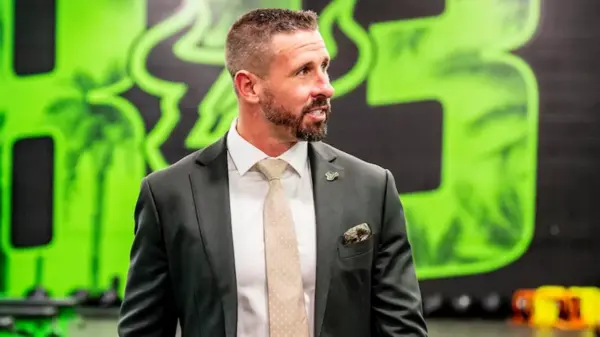Frontier, a coalition of technology leaders including Google and Meta, has announced a landmark investment in Arbor, a cutting-edge startup specializing in bioenergy with carbon capture and storage (BECCS). This $41 million deal marks a significant shift in the landscape of carbon removal projects, aligning climate goals with the demand for clean energy. The agreement underscores the growing confidence in innovative carbon removal technologies and sets a precedent for future investments in this space.
Under the terms of the deal, Frontier will acquire 116,000 tons of durable CO2 removal credits from Arbor’s forthcoming facility, scheduled to be operational between 2028 and 2030. This deal is not only Arbor’s largest offtake contract to date but also one of the most substantial carbon credit agreements utilizing BECCS technology.
Frontier’s Strategic Investment in Arbor
The decision to invest in Arbor is backed by an advanced market commitment from major companies like Google, Meta, Shopify, Stripe, and McKinsey. Arbor’s first commercial-scale plant is set to be constructed near Lake Charles, Louisiana, chosen for its access to sustainable biomass, skilled labor, and existing CO2 transportation and storage infrastructure. Construction is anticipated to begin within the next two years, with full operations targeted for 2028.
This investment provides Arbor with the necessary financial support to transition from pilot operations to full-scale deployment, effectively bridging the “valley of death” that often hinders clean tech startups. The commitment from Frontier’s coalition, which includes tech giants and climate-conscious brands like H&M and Autodesk, highlights a broader industry shift towards permanent carbon removal solutions.
“As we are thinking about carbon removal demand and where our electricity generation is going to come from, and how we are going to ensure that we are powering this [AI] boom as cleanly and efficiently as possible, Arbor really fits the bill.” — Hannah Bebbington, Head of Deployment at Frontier
Arbor’s Innovative BECCS Technology
Central to this deal is Arbor’s groundbreaking approach to BECCS. Unlike traditional large-scale BECCS facilities, Arbor employs a compact, modular system that transforms low-grade organic waste, such as forest residues and agricultural byproducts, into gas. This gas is then combusted using pure oxygen in a process known as oxy-combustion.
This method achieves nearly complete combustion, resulting in a high-purity stream of supercritical CO2, over 99% of which is captured and stored underground. Arbor’s dual-function system not only captures CO2 but also uses it to power an 18 MW turbine, generating significant clean electricity and verifying carbon removals.
For each ton of CO2 removed, Arbor’s system can generate up to 1,000 kilowatt-hours (kWh) of electricity, enough to power an average U.S. household for about a month.
Remarkably, Arbor’s plants are both carbon-negative and energy-positive, capable of providing 24/7 baseload power for energy-intensive sectors like data centers and AI infrastructure. The modular design, inspired by rocket engine technology, allows for scalable and cost-effective deployment in diverse locations, circumventing many of the permitting and infrastructure challenges faced by centralized BECCS facilities.
Implications for Carbon Removal and Power Generation
The rise of BECCS as a preferred carbon removal method is due to its scalability and dual benefits of carbon capture and power generation. The International Energy Agency projects that carbon capture from biogenic sources could reach 60 million tons per year by 2030. However, current BECCS capacity is insufficient to meet net-zero goals, requiring an estimated 185 million tons annually.
The carbon removal market saw a 59% growth in 2024, reaching $3.34 billion, with BECCS contributing significantly to this expansion. Early adopter deals, such as those between Microsoft and Stockholm Exergi, have demonstrated the viability of this model.
Frontier’s recent purchase builds on a previous agreement with Eion for CO2 removal using enhanced rock weathering. Arbor’s BECCS deal, which combines carbon credits with clean electricity, exemplifies how carbon credits can deliver substantial co-benefits.
Why This Deal Matters
The Frontier-Arbor agreement is pivotal for several reasons:
- Dual Impact: The deal exemplifies a new generation of climate solutions that integrate carbon removal with reliable clean energy. Arbor’s system captures over 99% of CO2 while generating continuous electricity, addressing the rising energy demands of AI and data centers.
- Scaling Carbon Markets: In 2024, BECCS accounted for nearly 90% of all carbon removal credits sold. Arbor’s high-quality approach establishes a benchmark for permanence, verifiability, and climate benefit, aiding the shift from less reliable offsets to impactful, long-term removal solutions.
- Financing Commercial Deployment: The $41 million advance purchase agreement provides Arbor with the financial stability needed to construct its first commercial-scale plant, facilitating faster scaling and bridging funding gaps.
- Meeting Tech Sector Needs: Big tech firms require clean, consistent energy for AI-driven infrastructure. Arbor delivers both emissions removal and baseload electricity, aligning with the growing expectations for climate-aligned digital operations.
If Arbor meets its targets, it could reduce the cost of captured CO2 to below $100 per ton, a critical threshold for scalable removal. This $41 million deal with Arbor’s BECCS-based carbon credits sets a milestone in developing a high-integrity market for dual-purpose projects, offering both carbon removal and clean power. Arbor’s innovative oxy-combustion turbine and modular approach present scalable potential, potentially transforming carbon markets and the energy systems necessary to support expanding digital infrastructure.








































































